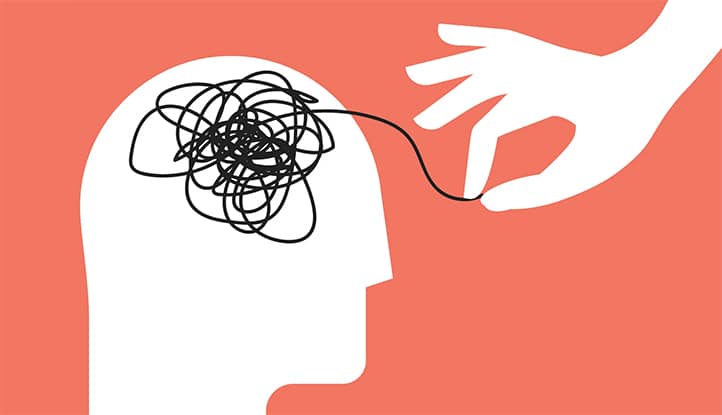Empirical research methods are one of the cornerstones of scientific knowledge. Across all scientific disciplines, from physics to sociology, these methods ensure objectivity, reliability, and verifiability of knowledge.
The essence of empirical methods lies in acquiring knowledge through direct study of objects and phenomena via observations, experiments, and other procedures. In modern science, these methods contribute to:
- Confirming or refuting hypotheses;
- Avoiding subjective assumptions and speculations;
- Forming practically useful knowledge.
The application of these methods guarantees that scientific research results are trustworthy and representative, which is particularly important in psychology, where the research object is the complex and multifaceted human psyche.
Psychology, as a science, developed for a long time in close connection with philosophy, with many of its theories based on intuition, observations, or subjective analysis. It was only with the advent of empirical methods that psychology became a truly scientific discipline.
- Objectivity in research: Empirical methods help avoid subjectivity, which was previously characteristic of descriptive approaches.
- Verification of results: The repeatability of experiments enables psychologists to confirm or refute their conclusions.
- Development of a quantitative approach: The use of statistics and mathematical methods for data analysis became possible thanks to empirical methods.
- Reaching an interdisciplinary level: Psychology integrates with other sciences, such as biology, medicine, neuroscience, and sociology, facilitated by the standardization of research.
Thus, empirical methods have enabled psychology to transition from a purely descriptive discipline to a more precise, experimental approach, allowing for a deeper understanding of human behavior and mental processes.

What Are Empirical Research Methods?
Empirical research methods are scientific approaches that involve studying real phenomena through direct observation, experimentation, testing, or other means of collecting objective data. Unlike theoretical methods, the empirical approach is based on actual experience and aims to obtain verified and measurable results.
Psychology as a science could not exist without empirical methods, as they allow for the study of the human psyche and behavior based on real data rather than assumptions. They enable the creation of well-grounded theories, the analysis of psychological phenomena, and the practical application of knowledge.
In psychology, empirical methods include:
- Observation: Passive or active study of behavior in natural or controlled conditions.
- Experiment: Intentional intervention in a process to study changes under specific factors.
- Survey: Gathering information through questions (questionnaires, interviews).
- Testing: Using standardized tools to assess psychological characteristics.
These methods allow for the collection of quantitative or qualitative data that can be analyzed, generalized, and used for theory building or the development of applied approaches.
Fundamental Principles of the Empirical Approach
Empirical methods are based on several fundamental principles that ensure their scientific validity and reliability:
- Objectivity: Research must be free from the subjective influence of the researcher. To achieve this, standardized methodologies and tools are used to minimize human factors.
- Repeatability: The empirical approach requires that results can be verified by independent researchers under identical conditions. This ensures the reliability of the data obtained.
- Systematicity: The research process is organized as a logical sequence: problem definition, hypothesis formulation, data collection, analysis, and conclusions.
- Verification: Data obtained during research must be validated using other methods or repeated experiments.
- Quantitative and qualitative analysis: The empirical approach allows for the collection of numerical data for statistical analysis and qualitative information for a deep understanding of psychological phenomena.
These principles make empirical methods the foundation of scientific knowledge.
Historical Context of the Development of Empirical Methods in Psychology
The history of empirical methods in psychology is closely tied to the development of the science itself:
- Pre-scientific period (before the 19th century): Before the emergence of scientific psychology, studies of the psyche were based on philosophical reflections and subjective observations. For example, ancient thinkers like Aristotle observed human behavior, but their observations were neither systematic nor experimental.
- The emergence of experimental psychology (late 19th century): Wilhelm Wundt, considered the founder of the empirical approach in psychology, opened the first experimental psychology laboratory in Leipzig in 1879. Wundt developed methods that allowed the study of mental processes in controlled conditions.
- Expansion of empirical methods in the 20th century: Psychology actively integrated empirical methods with other sciences, such as biology, medicine, and sociology. New approaches emerged, including:
- Behaviorism: Focus on observing behavior and controlling stimuli.
- Cognitive psychology: Study of mental processes through experiments.
- Neuropsychology: Use of tools to measure brain activity.
- Modern era: Today, empirical methods are enriched by technological advancements, including big data, artificial intelligence, and mathematical modeling. These allow psychologists to work with large samples, conduct online research, and obtain data in real time.
Thus, the development of empirical methods has evolved from simple observations to complex experiments, making them the cornerstone of modern psychology.

Classification of Empirical Methods in Psychology
Empirical research methods in psychology are diverse and adapted to study both individual and group behaviors. They enable researchers to delve deeply into mental processes, examining them in various conditions and at different levels.
The classification of empirical methods in psychology helps systematize scientific approaches and select the optimal tool for addressing specific research tasks. Methods are divided based on the data collection method, the degree of researcher intervention, and the type of analyzed subjects.
Observation
Observation is a fundamental empirical method that involves recording behavior or mental phenomena without direct researcher intervention. This method is valuable as it allows data collection in natural settings where behavior is expressed authentically.
Main types of observation:
- Natural Observation:
Conducted in familiar settings for the subject (e.g., at school, home, or work).
The researcher does not interfere with the situation, preventing behavioral distortion.
Example: Observing children on a playground to study social interaction. - Controlled Observation:
Takes place in specially created conditions where the researcher can manipulate certain variables.
Often used in laboratories or experimental rooms.
Example: Observing a person’s reaction to a specific stimulus in a lab setting. - Participant Observation:
The researcher becomes a part of the group or process being studied.
This method provides deeper insights but risks subjectivity.
Example: A psychologist participating in group therapy to study its dynamics.
Experiment
An experiment is the most systematic research method involving active manipulation of variables to study cause-and-effect relationships.
Main types of experiments:
- Laboratory Experiment:
Conducted in controlled settings, allowing the researcher to isolate the effects of specific variables.
Advantages: Precision and repeatability.
Example: Studying how room color affects participants’ mood. - Natural Experiment:
Conducted in real-world settings where changes are introduced by the researcher, but participants may not be aware of them.
Advantages: Realism, though variable control is often limited.
Example: Investigating the impact of a new teaching method on students’ academic performance.
Surveys
Surveys are versatile methods for collecting data about people’s opinions, feelings, beliefs, or behaviors through direct questioning.
Forms of surveys:
- Questionnaires:
A written form requiring answers to questions in a structured format.
Can be open-ended or closed-ended.
Example: Surveying students on their stress levels during exams. - Interviews:
Verbal communication with participants, which can be structured (following a clear script) or unstructured.
Advantages: Flexibility and the ability to clarify responses.
Example: Interviewing employees about workplace conditions. - Sociometry:
A method for studying interpersonal relationships within groups.
Used to determine group structure and leaders.
Example: Analyzing relationships in a children’s group.
Testing
Testing involves using standardized tools to assess psychological characteristics.
Key aspects of testing:
- Psychological Tests:
These have a clear structure and standardized procedures.
Divided into intellectual (IQ tests), personality (MMPI), and projective (Rorschach test) tools. - Standardization:
The process of creating a test to ensure its accuracy and reliability.
It allows for result comparisons across different groups. - Validity and Reliability:
- Validity measures whether a test assesses what it claims to evaluate.
- Reliability indicates result consistency upon retesting.
Analysis of Work Products
This method involves studying a person’s creations to understand their mental processes.
Features of this method:
- Objects of analysis can include written works, drawings, records, emails, etc.
- Used to analyze creativity, stress levels, or emotional states.
- Example: Analyzing teenagers’ diaries to explore emotional experiences.
The classification of empirical methods in psychology helps researchers choose the most effective tool to solve their problems. Each method has its own advantages, limitations, and areas of application, which allows for a comprehensive study of mental phenomena and behavior.

Advantages of Empirical Methods in Psychology
Empirical research methods have become the foundation of psychological science due to their ability to ensure accuracy, objectivity, and scientific reliability. They enable the study of mental processes and human behavior using factual data, minimizing subjective influences.
The main advantage of empirical methods is that they provide a basis for the formation of theories that can be tested, confirmed or refuted. By using both quantitative and qualitative data, these methods allow for the production of sound conclusions that are applied in practice, for example in clinical psychology, education or business.
Objectivity and Repeatability of Research
Objectivity is a fundamental principle of empirical methods, ensuring their scientific reliability.
What ensures objectivity?
- Use of standardized procedures. For example, tests or questionnaires have a clearly defined structure, minimizing the influence of researcher bias.
- Data recording using tools (e.g., audio or video recordings) or precise measuring instruments.
Repeatability of research
Repeatability (replication) means that a study conducted by other scientists under the same conditions should yield similar results.
- It is crucial for verifying the reliability of results.
- For instance, if a stress level test for students during exams produces consistent results across different universities, it indicates its reliability.
Objectivity and repeatability help avoid subjectivity and emotional influence on results, making empirical methods the cornerstone of scientific knowledge.
Ability to test hypotheses and theories
Empirical methods allow the transition from assumptions to verified facts, contributing to the advancement of science.
How does it work?
- Formulating a hypothesis. Example: “Motivation levels influence academic performance.”
- Conducting research to test this hypothesis (experiments or observations).
- Analyzing collected data and drawing conclusions on whether the hypothesis is confirmed or refuted.
Example in psychology:
- Hypothesis: People who practice meditation have lower anxiety levels.
- Method: Divide participants into those who meditate and those who don’t. After a month of observation, conduct anxiety level testing.
- Result: Empirical data confirms (or refutes) the effect of meditation.
Through empirical methods, psychologists can develop new theories or refine existing ones based on factual data rather than assumptions.
Using Quantitative and Qualitative Data for Substantiated Conclusions
Empirical methods enable combining quantitative and qualitative approaches to gain comprehensive insights into mental phenomena.
Quantitative data:
- These are numerical results that can be measured and analyzed statistically.
- For instance, measuring depression levels using the Beck Depression Inventory provides numerical scores for comparing different groups of people.
- Advantage: Precision and the ability to work with large samples.
Qualitative data:
- These are descriptive data that help understand the context and subjective experiences of participants.
- For example, interviews with patients suffering from post-traumatic stress disorder offer deeper insights into their experiences.
- Advantage: Rich information not always accessible through quantitative analysis.
Combining data:
- Many studies employ a mixed approach. For example, an experiment measuring anxiety levels (quantitative approach) may include participant interviews to explore their feelings (qualitative approach).
Empirical methods in psychology offer numerous advantages that make them indispensable for scientific understanding. They ensure objectivity and repeatability, allow for hypothesis and theory testing, and facilitate combining quantitative and qualitative approaches to derive substantiated and precise conclusions. These methods not only drive scientific progress but also enable the effective application of knowledge in real life.

Challenges and Limitations of Empirical Methods
Empirical research methods are the foundation of psychology as a science, but their use is associated with certain challenges and limitations. These issues can affect the accuracy of results, the ethicality of procedures, and the applicability of the obtained data.
The complexity of empirical research in psychology is due to the necessity of considering both external and internal factors that may alter a person’s behavior or mental state. For instance, even a controlled experimental environment does not always guarantee the complete absence of external influences. Ethical concerns also arise, as studies involve human participants who may experience psychological or emotional discomfort.
Ethical Aspects of Research
One of the greatest challenges of empirical methods is adhering to ethical principles that ensure the protection of research participants.
Key ethical requirements:
- Informed Consent: Participants must understand the nature of the research, its purpose, and any potential risks. Example: In studies on the effects of stress, participants must be informed about how the study might affect their mental state.
- Confidentiality: Participants’ personal data must not be disclosed. Example: In research on depression or anxiety, ensuring anonymity is critically important.
- Avoidance of Harm: Research should not cause physical or psychological discomfort. Example: Experiments involving social isolation might induce anxiety or stress and therefore require thorough ethical oversight.
- Right to Withdraw: Participants have the right to withdraw from the study at any time without facing negative consequences.
In some experiments, such as Milgram’s classic study on obedience to authority, participants experienced significant emotional stress. This prompted substantial criticism regarding the ethicality of such research.
Modern psychology has established strict ethical standards that are monitored by ethics committees. These standards minimize risks and ensure the humanity of research.
The Complexity of Controlling Variables in Real Environments
Controlling variables is a critical condition for the accuracy and reliability of results. However, in real-world settings, this task is often challenging.
Main challenges:
- Influence of Extraneous Factors: Isolating all variables in real-world environments is difficult. Example: In studies on the influence of family environment on a child’s success, it may be impossible to account for all social, cultural, or economic factors.
- Behavioral Reaction: Participants may change their behavior when they know they are being observed (Hawthorne effect). This can distort the research results.
- Dynamic Environment: Social or cultural changes occurring during the study may influence the results. Example: In longitudinal studies on the impact of technology on mental health, challenges arise due to constant updates in technology.
Possible solutions:
- Using mixed methods (e.g., combining experiments in controlled environments with observations in real-world settings).
- Statistical analysis to account for the influence of extraneous variables.
Challenges in Generalizing Results
Generalizing research findings to a wider population is one of the most important goals but is not always feasible.
Causes of the problem:
- Small Sample Size: If the sample size is too small, the results may not reflect the actual situation on a population scale. Example: Results of a study conducted only on students from one university cannot be generalized to all students.
- Homogeneity of Participants: Research participants may share similar social, cultural, or economic statuses, limiting the universality of conclusions.
- Contextual Specificities: Results obtained in one culture or country may not be relevant in another. Example: Studies on employee motivation in Western Europe might yield entirely different results in Asian countries.
Solutions:
- Using representative samples that reflect demographic and cultural diversity.
- Conducting additional research in different contexts to validate findings.
Despite their many advantages, empirical methods face challenges that require attention and resolution. Ethical considerations, the complexity of controlling variables, and the issues of generalizing results are key concerns psychologists must address when planning research. By leveraging new technologies, improving methodologies, and adhering to ethical standards, these limitations can be minimized, ensuring high-quality scientific research.

Empirical Methods in Modern Psychological Research
Modern psychology employs empirical methods to investigate a wide range of issues related to behavior, thinking, emotions, and mental health. With the rapid development of technology and the integration of interdisciplinary approaches, these methods have taken on new forms and possibilities. Experiments, testing, surveys, and observations remain key tools, but they are now complemented by cutting-edge technologies such as Big Data, artificial intelligence, and neuroimaging.
Empirical methods in modern research not only allow for testing theories but also adapting them to new social challenges and technological conditions. For instance, in neuropsychology, experiments have become more precise thanks to functional magnetic resonance imaging (fMRI), while in social psychology, surveys and observations help study interaction dynamics within various social groups.
The Use of Experiments in Neuropsychology
Experiments are a primary method in neuropsychology, where they are used to study brain functioning and its influence on behavior and mental processes.
Methods:
- Neuroimaging. Using fMRI, electroencephalography (EEG), and magnetoencephalography (MEG) allows researchers to study brain activity during specific tasks. For example, fMRI studies show how different brain regions are activated during decision-making, solving cognitive tasks, and responding to emotional stimuli.
- Laboratory experiments. Participants are asked to perform specific tasks, such as memorizing words or solving puzzles, while their neural activity is measured.
Advantages:
- High data accuracy.
- Ability to study cause-and-effect relationships.
Testing in the Diagnosis of Mental States
Testing is an integral part of clinical psychology and psychiatry. It is used to assess mental states, identify abnormalities, and determine the degree of their impact on a person’s daily life.
Popular Methods:
- Psychometric tests
- For example, MMPI (Minnesota Multiphasic Personality Inventory) or Rorschach test.
- Used for diagnosing anxiety disorders, depression, schizophrenia, etc.
- Cognitive tests
- Assess memory, attention, language, and other cognitive functions.
- For example, Wechsler tests for IQ evaluation or working memory tests.
- Stress or depression level assessment
- Beck Depression Inventory (BDI) or Hamilton Anxiety Rating Scale (HAM-A).
Advantages:
- Standardized procedures.
- Ability to quantitatively assess psychological characteristics.
The Role of Surveys and Observations in Social Psychology
Social psychology employs surveys and observations to analyze human interaction in groups, social stereotypes, conflicts, and other phenomena.
Methods:
- Surveys
- Includes questionnaires, interviews, and sociometric methods.
- Example: Surveys on societal tolerance levels or attitudes toward specific social norms.
- Observations
- Conducted in natural settings (e.g., observing student behavior in a classroom) or controlled experiments.
Advantages:
- Data collection directly within the context of social interaction.
- Ability to study a large number of participants.
Advanced Technologies in Data Collection and Analysis
Thanks to advancements in information technology, psychologists can now use vast amounts of data (Big Data) to analyze behavior and mental health.
Methods:
- Social networks and online platforms
- By analyzing user behavior on social media, psychologists can draw conclusions about social trends, stress levels, or societal depression rates.
- Mobile applications
- Used to collect data on activity levels, sleep patterns, and emotional states.
- Example: Mental health monitoring apps that track a user’s mood throughout the day.
- Artificial intelligence
- Utilized to analyze large datasets and identify patterns.
- Example: Algorithms predicting depression risks based on speech or behavioral patterns.
Advantages:
- Capability to analyze large samples in real-time.
- Integration of data from various sources (surveys, social media, mobile apps).
Empirical methods in modern psychological research provide opportunities for obtaining profound and well-founded conclusions. The use of experiments in neuropsychology, testing in clinical diagnostics, surveys and observations in social psychology, and advanced technologies enables the study of human beings from multiple perspectives. This contributes to the development of science and the practical application of psychological knowledge in the modern world.

The Contribution of Empirical Methods to the Development of Psychology
Empirical methods have been fundamental in transforming psychology from a philosophical field into an exact scientific discipline. Through systematic collection, analysis, and interpretation of data, psychology has established itself as a field based on objective evidence. These methods have contributed to the creation of a scientific foundation, increased trust in psychology from both the scientific community and the general public, and facilitated the application of psychological knowledge in practical activities and related fields such as education, medicine, and business.
The scientific precision and reliability provided by empirical methods have allowed psychology to meet the high standards of modern science. These methods not only enable the testing of theories and hypotheses but also assist practitioners in developing effective intervention, diagnostic, and treatment strategies.
Establishing a Scientific Foundation for Psychology
Empirical methods have enabled psychology to transition from speculative analysis to a scientific approach.
Scientific Basis:
- The use of methods such as observation, experiments, and testing has allowed the creation of a representative knowledge base supported by objective data. For example, Wilhelm Wundt’s classical experiments in his laboratory studying reactions and perception marked the beginning of empirical psychology.
Systematization of Knowledge:
- Empirical research has allowed psychologists to classify mental phenomena and develop theories of personality, memory, learning, and other processes.
- Statistical analysis methods have facilitated the study of behavioral patterns based on large datasets.
Example:
Ivan Pavlov’s research on conditioned reflexes provided the foundation for understanding learning and behavioral responses, which remain relevant in cognitive-behavioral therapy today.
Building Trust in Psychology as an Exact Scientific Discipline
One of the major achievements of empirical methods has been solidifying psychology’s status as a scientific discipline.
Objectivity of Data:
- Empirical methods such as experiments and observations yield data that can be verified and reproduced. For instance, Sigmund Freud’s work was criticized for its lack of empirical support, while cognitive psychology studies (e.g., George Miller’s experiments on short-term memory limitations) gained recognition due to their evidence-based nature.
Behavioral Prediction:
- Empirical research enables psychologists to develop models that predict specific behaviors or reactions.
- This fosters trust in psychology, particularly in areas where research outcomes influence real-life decisions (e.g., workforce management or educational programs).
Example:
Albert Bandura’s research on social learning (notably, the “Bobo doll” experiment) demonstrated that people learn by observing others. These findings laid the groundwork for many practical applications, including the development of educational programs.
Applying Knowledge in Practical Psychology and Related Fields
Empirical methods directly impact the development of practical psychology and its integration into various aspects of life.
Practical Psychology:
- Empirical studies help create effective psychotherapeutic approaches, counseling methods, and diagnostic tools. For example, сognitive-behavioral therapy (CBT) is based on experimental research that confirms its efficacy in treating anxiety and depressive disorders.
Education:
- Data from empirical research is used to design teaching methods that account for memory, attention, and motivation. For example, Howard Gardner’s theory of multiple intelligences, supported by empirical data, has guided the creation of adaptive educational programs.
Business and Management:
- Empirical methods help develop training programs for employees, assess competencies, improve productivity, and foster a positive work environment. For example, research on employee motivation contributed to the development of Edward Deci and Richard Ryan’s self-determination theory, which is widely applied in management.
Medicine:
- In the medical field, empirical methods are used to diagnose mental disorders and develop treatment programs. For example, psychological testing and interviews are used to diagnose post-traumatic stress disorder (PTSD).
Empirical methods have driven the development of psychology, transforming it into an exact science based on objective data. These methods have provided the foundation for building a scientific base, strengthened trust in psychology from society and the scientific community, and opened new opportunities for the practical application of psychological knowledge across various fields. Thanks to these methods, psychology has become not only the science of human behavior but also a tool capable of improving people’s quality of life.

Prospects for the Development of Empirical Methods in Psychology
The modern world is rapidly changing under the influence of technological progress, and psychology as a science is actively adapting to these changes. Empirical research methods continue to evolve, integrating advancements from other sciences and implementing new technologies for more effective study of the human psyche.
These directions open new horizons for researchers, enabling them to work with large datasets, uncover hidden patterns, and integrate psychological knowledge into other fields. The use of innovative technologies will help make research even more precise, large-scale, and applicable, allowing psychology to delve deeper into the complex aspects of human behavior and psyche.
Integration of Artificial Intelligence and Machine Learning
Artificial Intelligence (AI) and Machine Learning (ML) significantly expand the capabilities of empirical methods in psychology, allowing for data analysis with unprecedented accuracy and speed.
Big Data Analysis:
- AI can process enormous datasets, identifying patterns that are difficult to detect with traditional methods. For example, analyzing textual data from social media can help researchers understand the emotional states of large groups of people in real-time.
Behavior Modeling:
- ML enables the creation of models that predict behavior based on large datasets. For instance, algorithms can identify the risk of developing mental disorders based on behavioral patterns recorded by wearable devices.
In clinical psychology, AI is already being used to diagnose depression through voice analysis or facial expressions, complementing traditional methods.
Expansion of Interdisciplinary Research
An interdisciplinary approach is becoming increasingly relevant for empirical research in psychology. Integrating knowledge from related fields allows for addressing complex problems.
Biology and Neuroscience:
- Modern psychology actively interacts with neuroscience, using tools like functional magnetic resonance imaging (fMRI) to study brain activity. For example, experiments in neuropsychology help explore the relationship between brain structure and mental processes.
Social Sciences:
- Collaborative research with sociology, economics, and anthropology enhances understanding of human behavior in social contexts. For instance, interdisciplinary studies have examined the impact of socio-economic factors on anxiety levels in populations.
Technology:
- Partnerships with engineering and computer sciences enable the creation of innovative tools for data collection and analysis. For example, virtual reality is used to simulate complex situations in behavioral research.
Development of Tools for Big Data Analysis
Big Data has already transformed many fields of science, and psychology is no exception. Collecting large volumes of information and using state-of-the-art analytical tools allow for a deeper understanding of complex phenomena.
Automated Data Collection Platforms:
- New tools, such as mobile applications or online survey platforms, enable quick and large-scale data collection. For example, mood monitoring apps are used to study the dynamics of mental health.
Analysis of Complex Interrelationships:
- Modern statistical methods, such as network analysis or clustering, help identify relationships between different variables. For example, analyzing social network structures can shed light on the influence of social environment on personality development.
Ethical Aspects of Big Data Usage:
- The use of Big Data requires the development of new ethical standards to ensure confidentiality and the protection of participants’ personal information.
Example:
In a study on emotional reactions to the COVID-19 pandemic, data analysis from social media revealed changes in stress and depression levels across different countries.
The development of empirical methods in psychology opens new opportunities for research and the practical application of knowledge. The integration of AI and machine learning enables unprecedented efficiency in working with data. Interdisciplinary approaches enhance the understanding of complex mental processes in the context of interaction with other life domains. Additionally, the use of Big Data makes it possible to analyze behavior and mental health on a global scale. These prospects not only foster the advancement of science but also help address pressing issues in modern society, making psychology even more applied and beneficial.

Conclusion
Empirical research methods hold a key place in modern psychology, forming its scientific foundation and ensuring the accuracy, objectivity, and practical significance of the knowledge gained. Their application allows for the exploration of complex aspects of the psyche, enabling an in-depth study of behavioral, cognitive, and emotional processes. It is precisely due to the empirical approach that psychology has evolved from being merely a philosophical discipline into a science capable of offering effective solutions for a wide range of tasks—ranging from diagnostics and psychotherapy to managing social processes.
The main advantages of empirical methods, particularly their objectivity, reproducibility, and the ability to integrate quantitative and qualitative data, have become the basis for increasing trust in psychology among both the scientific community and society. These methods have not only equipped psychology with precise tools for testing hypotheses and theories but have also contributed to the formation of an evidence base essential for its development. This has granted psychology the status of a scientific discipline capable of competing in accuracy and reliability of conclusions with other natural sciences.
A significant contribution of empirical methods is their impact on practical applications. Data obtained through empirical research helps improve diagnostic and therapeutic approaches, create new methods for assessing mental states, and address issues in areas related to education, work, and interpersonal relationships. They are also actively applied in interdisciplinary fields such as marketing, economics, and politics, demonstrating the universality and flexibility of psychological science.
However, to maintain and further develop this role, it is necessary not only to sustain but also to refine the methodology of empirical research. Challenges related to ethical aspects, control of variables, and the generalization of results require constant attention from researchers. The integration of cutting-edge technologies, such as artificial intelligence, and the expansion of interdisciplinary approaches are of particular importance, as they ensure a deeper and more comprehensive understanding of the human psyche and behavior.
Calling for the continued enhancement of empirical methods, it is worth noting that their development is not just a matter of methodology but an investment in the future of psychology as a science. This is a path toward creating more precise, ethical, and large-scale research capable of not only explaining but also addressing humanity’s problems in a global context. Empirical methods remain the foundation on which scientific psychology is built, and their further advancement promises to expand the horizons of this discipline even further.
Recommended Literature
- “Experimental Psychology in Schemes and Tables” – Author: V.V. Gorbunova
A study guide containing materials from the standard course “Experimental Psychology” for university psychology faculties. It outlines the methodological foundations of psychological research, the stages of development of the experimental method in psychology, and provides a classification and description of empirical research methods in psychology. - “Classification of Methods in Psychological Science” – Author: O.V. Vynoslavska
This study guide examines the main methods of psychological research, including empirical methods such as observation, experiment, survey, tests, document analysis, the study of activity products, and expert evaluation.




